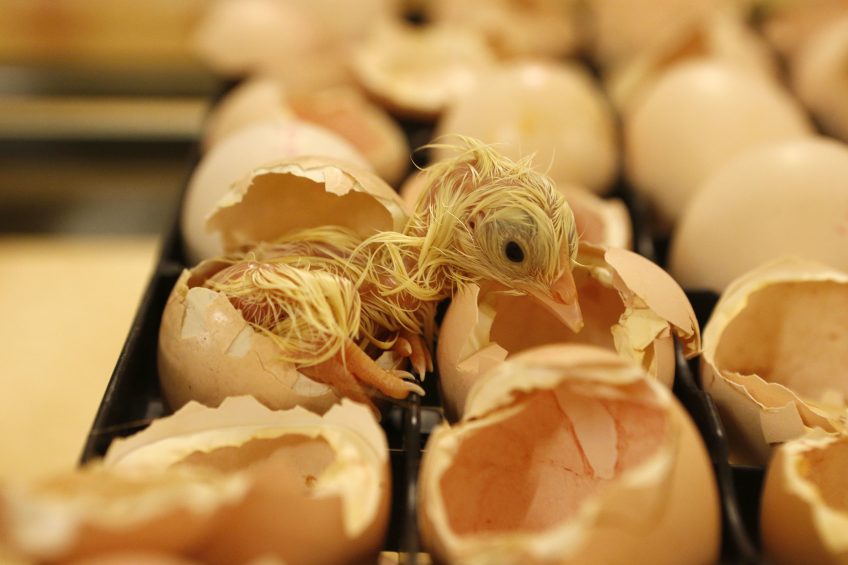Supplementing poultry diets with hatchery waste

A recent study has examined the effect of hatchery eggshell membranes (HESM) as a short term feed supplement on growth performance and immunity of chickens under bacterial lipopolysaccharide (LPS) challenged conditions.
Eggshells are a significant part of hatchery waste which consist of calcium carbonate crust, membranes, and proteins and peptides of embryonic origins along with other entrapped contaminants including microbes.
Nutritional additive to improve immunity
The USDA-funded study led by researchers of the University of Arkansas hypothesised that using this product as a nutritional additive in poultry diet may confer better immunity to the chickens in the paradigm of mammalian milk that enhances immunity.
Three studies were conducted to find the effect of HESM supplement on post hatch chickens. In the first study, the chickens were fed either a control diet or diets containing 0.5% whey protein or HESM as supplement and evaluated at 5 weeks of age using growth, hematology, clinical chemistry, plasma immunoglobulins, and corticosterone as variables.
The second and third studies were done to compare the effects of LPS on control and HESM fed birds at 5 weeks of age following at 4 and 24 h of treatment where the HESM was also sterilised with ethanol to deplete bacterial factors.
Poultry weight gain
HESM supplement caused weight gain in 2 experiments and decreased blood corticosterone concentrations. While LPS caused a significant loss in body weight at 24 h following its administration, the HESM supplemented birds showed significantly less body weight loss compared with the control fed birds.
The WBC, heterophil/lymphocyte ratio, and the levels of IgG were low in chickens fed diets with HESM supplement compared with control diet group. LPS challenge increased the expression of pro-inflammatory cytokine gene IL-6 but the HESM fed birds showed its effect curtailed, also, which also, favoured the up-regulation of anti-inflammatory genes compared with control diet fed chickens.
Improved poultry performance
The study concluded that post-hatch supplementation of HESM appears to improve performance, modulate immunity, and increase resistance of chickens to endotoxin.
The entire research article has been published on PlosOne.












